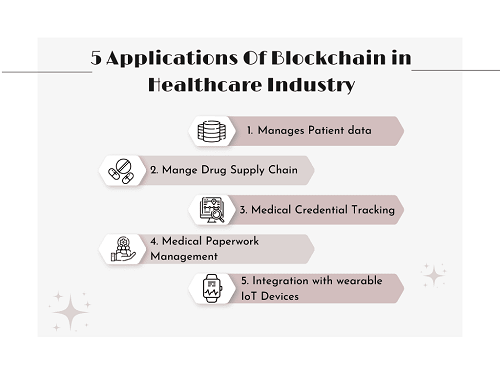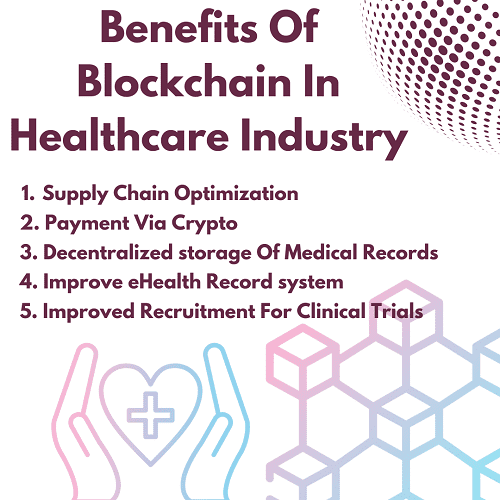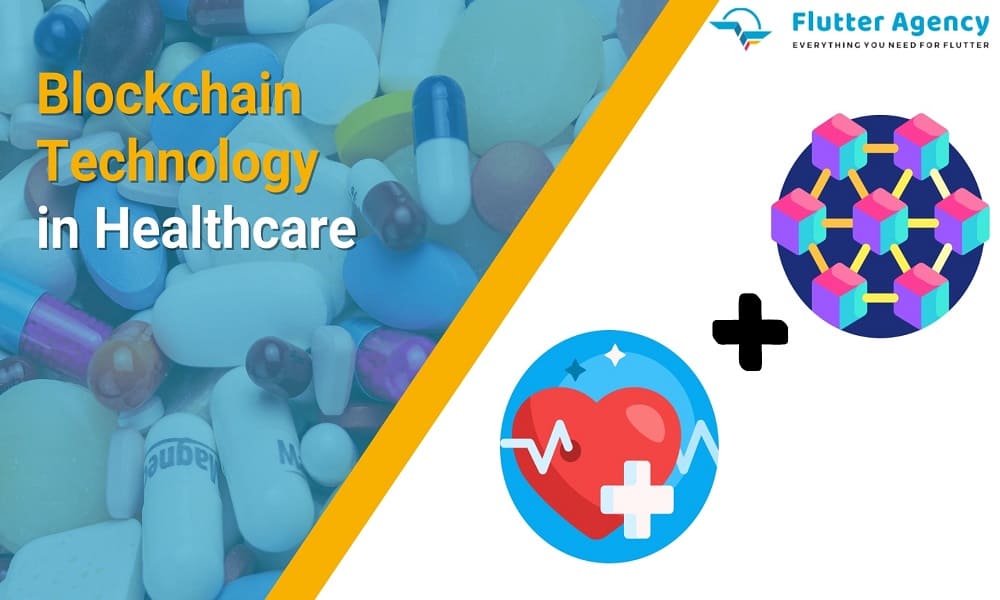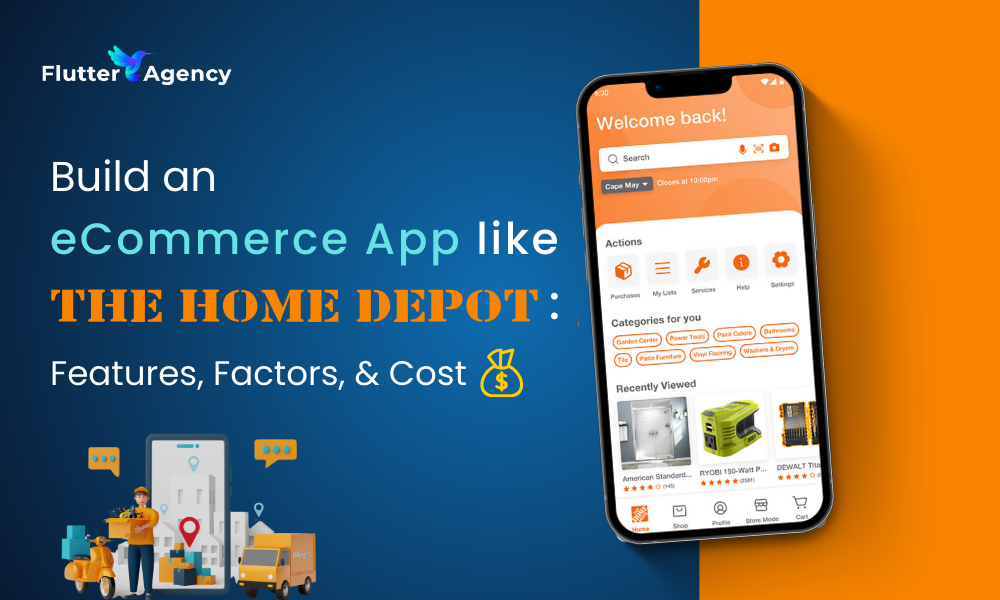Blockchain In Healthcare: Use cases, Advantages, Future and Challenges
Blockchain technology in healthcare has gained much popularity since its establishment, and it’s because of features like transparency and immutability. However, these features have made excellent solutions for the various problems in the industries like finance, and healthcare and supply chain is no exception.
With the arrival of the technological revolution in healthcare firms, all healthcare organizations are adapting these latest technologies that give the facility to their procedures. However, this industry also handles patients’ sensitive data, so the providers must ensure that any technology they adopt does not compromise the security of patient information. Blockchain technology benefits the healthcare sector in many ways.
In this detailed blog, we will see the advantages, use cases, challenges and future of blockchain in the healthcare industry. Let’s begin!
Blockchain Technology in Healthcare Market Research
Global blockchain technology in the healthcare market was $531.19 million in 2021 and is estimated to reach $16.31 billion by 2031, with a CAGR of 40.8% from 2022 to 2031. Blockchain is the distributed database or the ledger that is shared among the computer network nodes. Blockchain will act as the electronic database that stores the data in digital form. In the healthcare system, blockchain networks keep and share patient data among hospitals, labs, drug companies and doctors. It will enhance efficiency, safety and the openness of transferring medical data within the healthcare system. However, by increasing the performance, disintermediation and security of electronic medical records, this technology gives a new model for health information exchanges for the blockchain in the healthcare market.
The primary factor behind the adoption of blockchain technology in the healthcare industry is the rise in the data. Moreover, cybercriminals are more likely to target medical databases. It may use or sell healthcare information to generate income. Additionally, the adoption of blockchain technology in the healthcare system flourishes in the healthcare market. But the need for standards and the complicated nature of technology will impede market growth. Moreover, the continued advancement in blockchain technology will allow marketers to invest and boost their firms with great sources.
Use Cases Of Blockchain in the Healthcare Industry
Different approaches through blockchain technology will help cover the healthcare industry’s loopholes. Let’s see some of the five use cases of blockchain in healthcare.

1. Manages Patient data
A well-known healthcare use case for the blockchain will view patient data management. The medical records tend to be separated by the health agencies because it is only possible to determine the patient’s medical history by consulting their prior care provider. Hence, it takes a significant amount of time and leads to errors because of human error.
2. Manage Drug Supply Chain
Beginning with statistics, the National Crime Prevention Council has stated that around 10% of drugs in the global supply chain are counterfeit. It is considered the distribution trend, particularly for those who require medicines that are not getting proper treatment to cure their potentially life-threatening ailments. Per estimation, the counterfeit drugs market is up to $200 billion annually.
The blockchain transactions are immutable and timestamped. However, it follows fraudulent drugs and drug transactions which are easier to identify and are stopped if you use the blockchain. Blockchain for drug traceability is the other user in the healthcare industry. In this, the inventory is managed, and the life cycle of drugs is easily monitored.
3. Medical Credential Tracking
While taking the treatment from the doctor, the patient wants the confidence that they are getting proper treatment from a doctor. Do these professionals have enough qualifications? What is his previous experience, and where did they work before?
So, verifying medical credentials is one of the leading use cases of blockchain in healthcare. This technology staves all the healthcare provider data in the only database. Moreover, blockchain technology will help you verify these credentials’ authenticity.
It also aids in hiring medical professionals since an employer can quickly check all the data about candidates without a vast bureaucracy. Additionally, advanced blockchain security standards will secure all medical credentials.
4. Medical Paperwork Management
The hospitals and various healthcare experts reduce their clients’ paperwork, and doctors must fill it out. Computers can replace a paper-based system, which is suitable for better storage purposes and reduces the cost and time spent on daily tasks.
Additionally, insurance transactions are easy to track so that everything is found. The providers and patients do not have to go through the hassle of generating additional copies of transactions to the insurance providers in which everyone appreciates work.
5. Integration with Wearable IoT Devices
The most extraordinary feature of blockchain technology is that it can be used with wearable IoT gadgets. It gives better health record monitoring by patients and doctors.
Blockchain can give an authenticated and secure platform for implementing the data within the wearables like fitness, health or activity tracker devices. Doctors, like patients, will reach the regularly updated data, allowing them to track changes or progress quickly.
Also, Read This Post:
Emerging wearable technology for the healthcare apps
6. Smart Contracts for Insurance
This tech allows the insurance service provider to transmit their procedure to the digital environment and automate an insurance issuance.
Each smart contract is registered on the blockchain and is easily accessible, so there will be no issues with insurance terms. Therefore, everything linked with health insurance coverage and drug reimbursement is checked online.
So, smart contracts allow insurers to use advanced analytics to help them optimize their consumers’ insurance plans.
Advantages Of Blockchain Technology In the Healthcare Industry
Now let’s see the benefits of this emerging technology in the healthcare system.

1. Supply Chain Optimization
The main challenge in the healthcare industry is to guarantee the authenticity of the origin of medical items to guarantee the authenticity of the medicines. With the support of blockchain technology, medicine is traced from manufacturing to every phase of the supply chain. It provides the visibility and transparency of products to be purchased. Therefore, companies can apply AI for better prediction and will optimize the supply accordingly and hence increase customer confidence.
2. Payments Through Cryptocurrency
With blockchain technology, getting a medical assistant and paying for those services in cryptocurrency is possible. A micropayment model will record all details of a patient’s activities related to a treatment review.
3. Decentralized Storage Of Medical Records
This file system permits the version file data to be stored in decentralized storage environments. It will build the unique hash, known as the base configured IED description, ensuring that all the file versions are identical. A hash returned by IPFS permits the users to access information on the sites, as the blockchain files are immutable and the websites change regularly, so the DNS needs to be changed after every update. Hence, the IPFS solves this issue by mapping the site address to the DNS.
4. Improvise eHealth Record System
Electronic health record systems are health data in digital format that is built and stored by many of the various healthcare facilities. In healthcare app development, the blockchain addresses the shortcomings like accessibility, authentication and interoperability by linking electronic health records and sharing the form of ownership among all the interested parties.
5. Improved Recruitment For Clinical Trials
Researchers have developed the Ethereum-dependent blockchain, which will simulate a recruitment process. A resulting blockchain-based system safeguards the participants’ privacy, allowing all researchers to show the trial data about the patient’s health.
Future Of Blockchain In the Healthcare Industry
This emerging technology in healthcare has solved some of the enormous challenges the healthcare industry faces. Hence, your reach will give you better results. Increasing the technical tools will facilitate patient data sharing and improvising healthcare procedures. Also, the industry is looking for secure and transparent ways to perform the operations to have absolute authenticity in systems and ensure that their patients are themselves.
With decentralized nature and its capabilities will give secure and robust solutions via blockchain technology. It is expected to be used in parallel with other technologies like AI and ML to enhance healthcare blockchain solutions.
Challenges Of Blockchain In the Healthcare Industry
1. Scalability
Implementing the latest technology in the healthcare industry is a vast concept and demands a lot of network infrastructure, as this transition will no doubt be time-consuming.
2. Data Privacy
Blockchain is the best and most secure method to save patient data. Therefore, there is a need to ensure that participants have the right to access and eliminate data as per their preferences.
3. Confidentiality Of Data
It is highly efficient, and unauthorized access to sensitive data is very hazardous for any organization blockchain technology is susceptible to these few types of attacks. Hence, we must take care that patient data is safe and secure.
4. Data Immutability
It is impossible to alter the information on the blockchain, so the vast files that need frequent changes should not be done on the platform.
5. Scope For Research
Electronic health records recently permitted the automatic updating and the sharing of medical data on a single patient within the organization if the information is arranged on the topmost layer of the blockchain that consists of info not used to identify any individual.
Hence, this technique will give the researchers a more comprehensive range of data, including patient data. Clinical research and public health reporting, among others, will benefit enormously from the availability of massive amounts of data.
Also, Read This Post:
Why Do Doctors Must Focus on Patient Electronic Records?
Conclusion
With the potential uses and pros of the blockchain in healthcare, it says that we have only scratched the surface, and the technologies will constantly move forward. To keep your medical business in the leading position, apply these technologies in the new technology solution.
Despite its challenges related to blockchain legislation and regulation in healthcare, this innovation is still in great demand. Blockchain helps solve data security issues, improve the quality of healthcare, and improve research in the medical field.
Having the experience, Flutter Agency knows how innovative, unique and beneficial it is. Our healthcare app developers will help you develop healthcare apps with blockchain technology. Let’s get in touch with us and share your following project needs!
Frequently Asked Questions (FAQs)
1. How does the blockchain help the healthcare industry?
Blockchain is utilized for health record-keeping, patient monitoring, clinical trial, improvising safety, and transparently displaying the data. It maintains a financial statement in healthcare organizations and minimizes data transformation costs and time.
2. Is it possible to use the blockchain for the medical record?
Yes. Blockchain has a broader range of apps and uses in the healthcare industry. Distributed ledger technology facilitates a secure transfer of the patient medical data that manages the medical supply chain and aids the healthcare researchers that unlock the genetic code.
3. What issues can blockchain solve in the healthcare industry?
Blockchain technology will build an efficient, transparent, safe and effective way of conversing across global healthcare with patient data. It supports healthcare development, saves money and supports further investment into the necessary resources.
Contemporary ventures
Recent blog
ready to get started?
Fill out the form below and we will be in touch soon!
"*" indicates required fields












